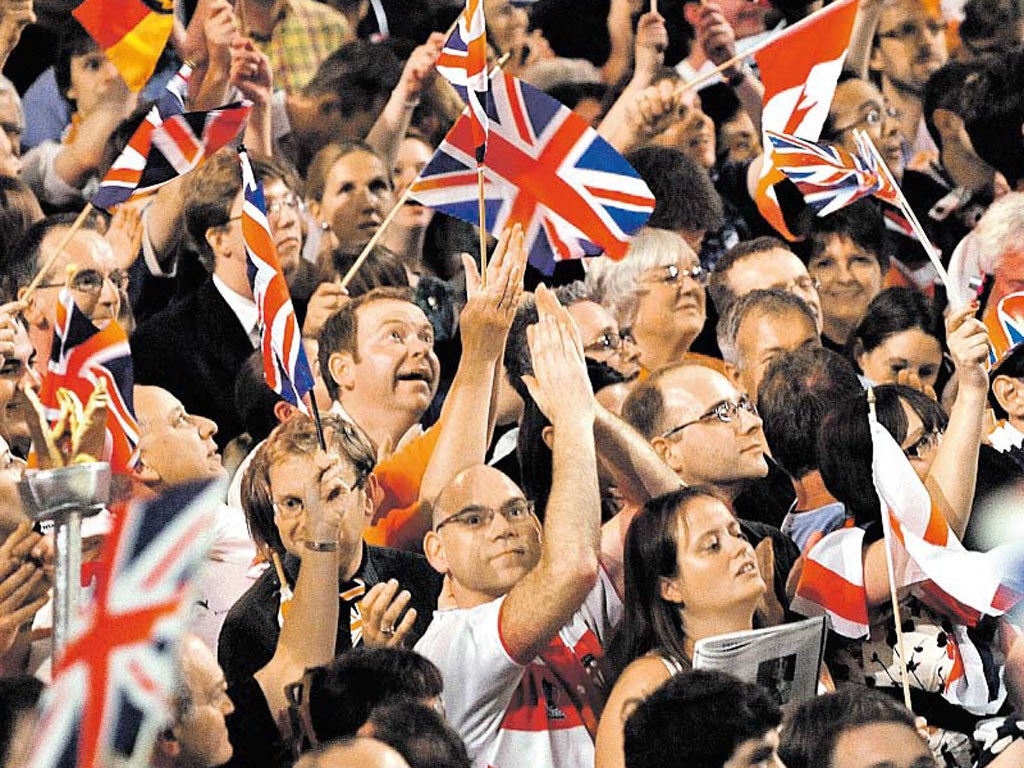David Lister: A bit of Barenboim and home in time for Boyle: perfect

Last night, I was able to attend one of the best Proms of the season, Daniel Barenboim conducting Beethoven's Ninth Symphony and get home in time to watch the Olympics opening ceremony on TV. Roger Wright, head of the Proms, is having a triumphant season so far. But I count as one of his small triumphs scheduling the Ninth for an early start and finish so that concert goers could watch that and a key moment of the Olympics.
It sends out a good message, a message that arts aficionados can be and very often are sports fans too. By contrast, Andrew Lloyd Webber, when he announced that he would be shutting some of his shows for the Olympics, sent out a negative message, a message that the tourists in town for the Games would be unlikely to come to the theatre. He seems to have rowed back on that decision now. But the damage was done. It was implicitly saying that you are unlikely to make room in your life for sport and the arts.
It has always struck me as both strange and irritating that sport and arts are so often pitted against one another. Part of the reason is a bureaucratic one. Arts and sport come under the same government department and, to a degree, have to fight for the same pot of money. This can lead, and has led, to resentment among leading arts practitioners. But the unnatural opposition of sport and arts starts much earlier, probably at school, where it is too often thought an oddity to be interested in both of those extracurricular activities. And it continues. Witness the astonishment aroused by the England football manager revealing recently that he curled up in bed with Albert Camus. He was probably forgiven because the French novelist was a goalkeeper too. But it was seen as slightly bizarre.
You can, of course, love both. I am passionate about the arts, I am passionate about sport. Many, many others are too. How can one love grace and drama and not love athleticism and sport, which depend on those two attributes? It is time to stop pitting the two fields against each other. Of course, there are those who give all their allegiance to one or the other, and Radar offers a valuable service today in informing those readers who aren't interested in the Olympics, where to go for their fortnight of fun.
But for those of us who can't get enough of sport and can't get enough of culture too, this is a hugely important couple of weeks coming up. Not just because there is a surfeit of activities, sporting at the Olympics, artistic at the Cultural Olympiad and other arts events. It is significant because the juxtaposition of Olympics and Cultural Olympiad might at last bring to an end the unnatural opposition of sport and arts, an opposition aided by some arts worthies who have publicly opposed the money going towards the Olympics. The next two weeks can make the point that sport and arts belong together, side by side, fulfilling related needs in spectators.
Let the Games commence. And with them a whole lot of art, drama, music and dance.
It's time to put the maestro on the big screen
On the subject of the Proms, there's something to be said for watching Barenboim do Beethoven on TV too. I've watched his other Beethoven Proms this season on the box rather than live, and there is one huge advantage. Unlike most of the audience at the Royal Albert Hall, the television viewer could see Barenboim's face. Indeed, the camera never left it for more than few moments. And a wonderfully watchable face it is too, somehow managing to be impassive and expressive at the same time, at one moment even winking at his young charges in the West-Eastern Divan Orchestra.
It continues to strike me as bizarre that the audience at a classical music concert never sees the conductor's face, while a TV broadcast of the same event recognises that it is a crucial element of the evening. Surely screens in the concert hall can only be a matter of time.
No satisfaction from these rock docs
Watching an unusually feeble documentary on the usually reliable Sky Arts to celebrate The Rolling Stones' 50th anniversary, I was struck by three thoughts:
1. Why are so many music documentaries dependent on interviews with journalists? There are enough people alive who really knew the band. The band, for example. What's the point of outsiders talking to outsiders?
2. Why is every other journalist in every other rock documentary Paul Gambaccini?
3. In any documentary the word "apparently" should be banned. This one even had the narrator state: "Apparently, the sleeve for the group's second album said…" Apparently? It either did or it didn't. Look it up.
d.lister@independent.co.uk
twitter.com/davidlister1
Subscribe to Independent Premium to bookmark this article
Want to bookmark your favourite articles and stories to read or reference later? Start your Independent Premium subscription today.

Join our commenting forum
Join thought-provoking conversations, follow other Independent readers and see their replies